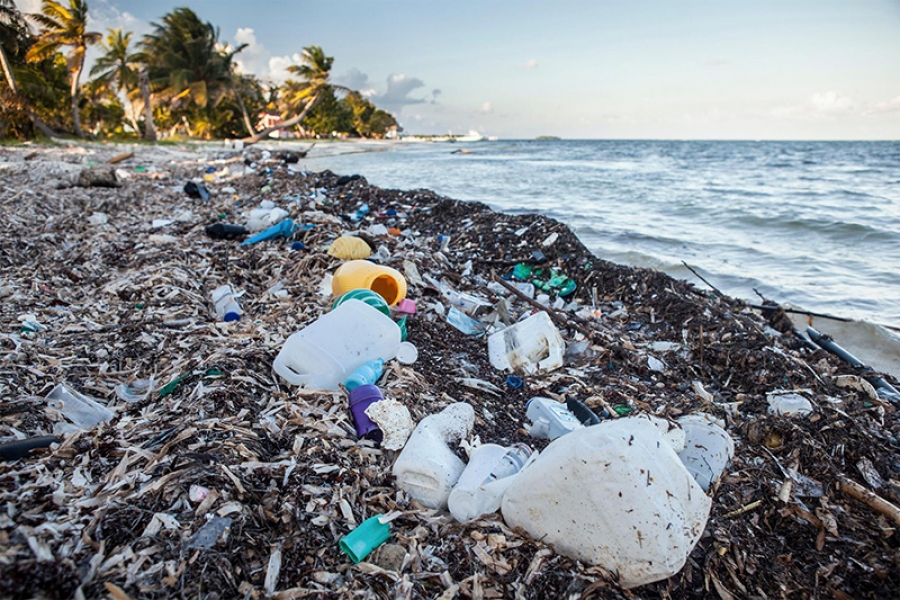Littering on the beach, a significant problem: NES
Wednesday 18 January 2023 | Written by Losirene Lacanivalu | Published in Environment, National

Plastic waste has become a huge problem in oceans all around the world. 18111323
Director National Environment Service (NES), Halatoa Fua says littering and rubbish on the beach is a significant problem in the Cook Islands – together with waste in general.
Fua says it is one of the least appealing aspects of the Cook Islands International Visitor Survey.
“We encourage visitors and locals to bring this to our attention.”
Fua made this comment after CI News received a letter from a visitor who said have been on Rarotonga for the last one month and on Monday upon going to a late afternoon swim at the social centre beach they were appalled by the amount of rubbish scattered across the sand which included an empty bottle of vodka and two empty fizzy drink bottles.
It is not the first time attention has been focussed on the Black Rock area with numerous visitors and locals going public with concerns.
Kate Gurran said when she went for a late afternoon swim at the social centre beach, she was appalled at the amount of rubbish scattered across the sand.
“As I stood there marvelling at the lagoon, I see on my right the remains of a drunken night – an empty bottle of vodka and two empty fizzy drink bottles.
“Then the worst of all, I see an empty plastic bag. A plastic bag that could have easily been used to take these empty vessels to the bin.
“I thought to myself, as the tide was rising, the next wave that comes is going to take these bottles and plastic bag to sea.
“I couldn’t bear the thought of a turtle getting stuck in this plastic bag or any other sea life suffocating or mistaking the plastic for food.”
Gurran said she grabbed the plastic bag and picked up the bottles.
“I then looked around to see if there was any other rubbish I could remove from the beach. Guess what there was”
“Cans, food, plastic packets, cardboard plates, glad wrap – you name it. I ended up filling two plastic bags with rubbish and recycling that people had dumped on the beach.
“As I go to place these bags in the rubbish and recycling bins, I discover they’re overflowing.
“Rubbish and recycling scattered all over the ground. I see no alternative bins close-by. So I’ve cleaned the beach of rubbish, and now need to take it home to my family’s bin.”
Fua in response, said there was a need for more awareness and NES has developed some of the key tools including factsheets and videos.
Links are:
- https://environment.gov.ck/wp-content/uploads/2022/06/NES-Factsheet-6-Littering.pdf
- Video #4: Stop damaging our Enua: https://www.youtube.com/watch?v=sXVNDGcH-Kk . This has been used in our social media posts and played on CITV
He said NES would continue to strengthen the legislation and policy on littering and they are developing a new Environment Act this year.
He reiterated that the Prohibition on Importation of Plastic Shopping Bags Regulations 2012 is still in place.
“ICI is currently developing the Solid & Hazardous Waste Bill which will go through public consultation.”
He added that the Cook Islands is part of the intergovernmental negotiations for a legally binding global treaty to end plastic pollution particularly in the marine environment.












































